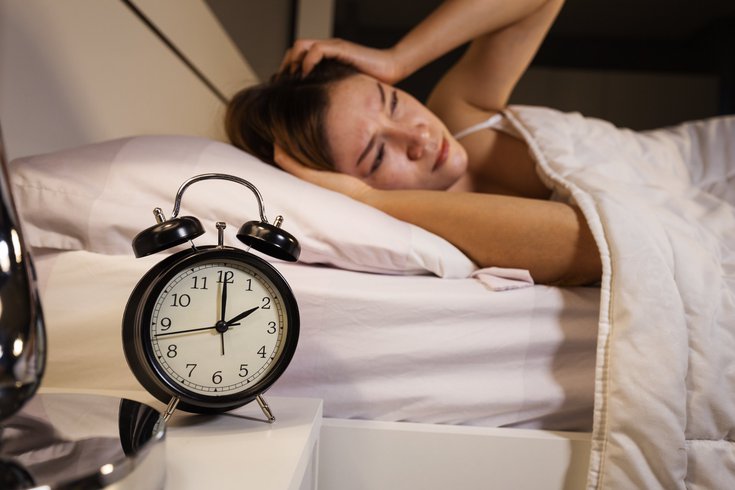Do You Want to Live Longer and Protect Your Brain? Get Better Sleep First
Although we have long known that sleep improves mood and memory, recent studies are placing sleep at the forefront of a much more sobering discussion about dementia and even early mortality. Yes, your brain's destiny in decades may be influenced by the number of hours you spend in bed each night.

And the most interesting aspect? To lower your risk, you do not need fancy trackers or miraculous supplements. All you need is regular, high-quality sleep, especially when you are in your 50s and 60s.
Let us examine the scientific findings and discuss how to take sleep seriously without making your bedroom a battlefield.
Get Less Than Six Hours of Sleep? Your Risk of Dementia Could Be Doubled

More than 2,800 senior citizens were monitored as part of the National Health and Aging Trends Study conducted by Harvard Medical School. The outcomes? Sobering and sour.
Compared to those who logged a solid six to eight hours of sleep per night, those who reported sleeping less than five hours were twice as likely to acquire dementia—and twice as likely to die within five years. Even after controlling for variables including age, marital status, body weight, health, and education level, this remained the case.
Harvard was hardly the only one. Nearly 8,000 participants from the UK, France, Finland, and the Netherlands were the subject of a study conducted by a European research team. At ages 50, 60, and 70, people who regularly slept for six hours or fewer had a 30% higher chance of developing dementia later in life than those who averaged seven hours.
The fact that these individuals are not already exhibiting early indicators of cognitive decline is groundbreaking. These middle-aged patients, many of whom were still decades away from receiving a dementia diagnosis, demonstrate the importance of midlife sleep in determining the health of the brain in later life.
Sleeping Patterns in Midlife Are More Important Than You May Think

It is simple to write off sleep issues in our 40s and 50s as a result of work obligations, parenting responsibilities, and midnight doomscrolling. These studies, however, point to something far more pressing: the way you sleep in your middle years is influencing the development of your brain.
For many years, medical professionals were unsure whether early dementia disturbed sleep or if poor sleep was the cause of dementia. However, by examining younger, healthier adults before symptoms appear, scientists are now more certain that sleep deprivation causes cognitive deterioration rather than merely contributing to it.
Why Is Sleep Beneficial to the Brain? The Flush Is the Key
It is an intriguing science. Every day, trash builds up in your brain, including rogue proteins, metabolic waste, and yes, beta amyloid—the same protein that causes sticky plaques in Alzheimer's disease.
Sleep, however, is like a thorough cleaning. Your brain cells actually shrink when you sleep, making more room for fluids to flow and remove this dirt. You are basically allowing the garbage to accumulate if you frequently cut your sleep short. Additionally, that accumulation may eventually pave the way for neurodegeneration.
Consider it a kind of nighttime rinse cycle for your brain.
Things You Can Do This Evening
Prescription medications or expensive devices are not necessary to begin improving your quality of sleep. The deep, restorative stages of sleep that your brain needs the most are actually frequently disrupted by sleep aids. Instead, think about these tactics supported by science:
Decide on a bedtime and keep to it. Rhythm is what your brain craves. Even on the weekends, try to go into bed and wake up at the same time each day.
Give up using screens an hour before bedtime. The hormone that aids in falling asleep, melatonin, is disrupted by blue light. Instead, try writing, taking a warm shower, or reading a book.
Make sure your room is dark, quiet, and chilly. These circumstances are linked by your brain to deep sleep and nightfall.
Take less coffee after 2:00 p.m. That "just one more" afternoon latte, indeed.
Get your body moving. Regular exercise can help you fall asleep more quickly and have better quality sleep, especially in the morning.
In summary, sleep is essential.

It is among the most effective strategies you can use to safeguard your brain, lower your chance of developing dementia, and lead a longer, healthier life.
Protect it like you would any other vital component of your health, and aim for six to eight hours per night.
Because although we have no control over our genes, we do have influence over how much sleep our brains receive. And the proof is obvious: get enough sleep now so your brain can stay sharp later.
What's Your Reaction?




















